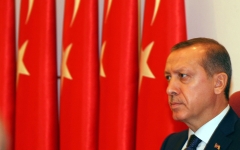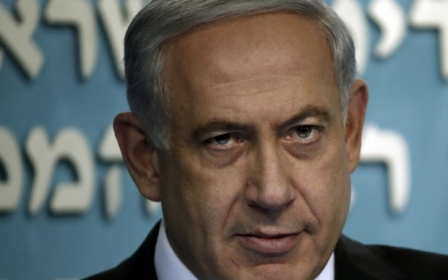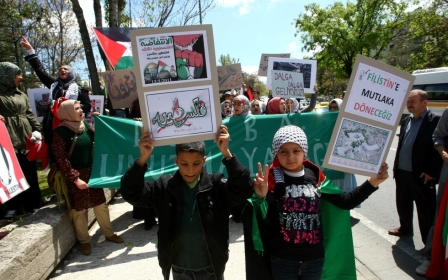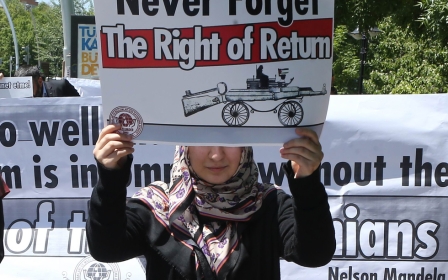Israel, Turkey reach deal to restore relations, Israeli source says
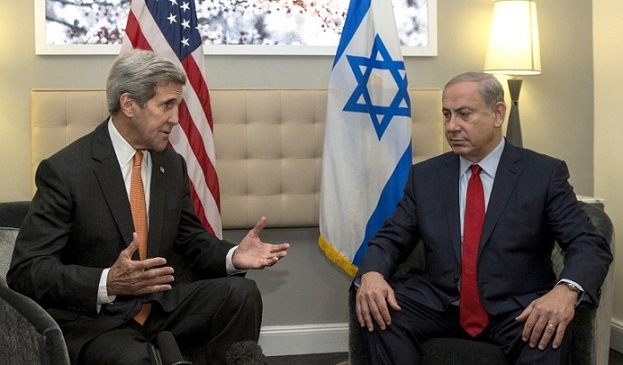
Israel and Turkey reached an agreement on Sunday aimed at ending years of acrimony and restoring normalised ties that soured after a deadly 2010 raid on an aid flotilla, an Israeli official said.
The highly anticipated agreement comes six years after an Israeli raid that killed 10 Turkish activists as the aid flotilla sought to run the blockade on the Gaza Strip.
Both sides have been pushing to complete the accord in recent months, with Israel in search of a potential customer for its offshore gas exports and NATO member Turkey wanting to restore its regional clout, analysts say.
The US has also pushed for the two countries to resolve the dispute as it seeks cooperation in the fight against the Islamic State (IS) group.
The Israeli official, speaking on condition of anonymity, told AFP the agreement had been reached, but details will not be announced until Monday. Negotiations were held in Rome, where Israeli Prime Minister Benjamin Netanyahu landed for talks with US Secretary of State John Kerry on Sunday.
A joint statement on the conclusion of a reconciliation agreement had been due to be released on Sunday evening, but was deferred until Monday at 1pm Israel time, according to the Israeli Haaretz news agency. Netanyahu is to hold a news conference in Rome with the members of the Israeli negotiating team – his envoy, Joseph Ciechanover and his acting national security adviser, Jacob Nagel. At the same time, Turkish Prime Minister Binali Yıldırım will hold a similar news conference in the Turkish capital, Ankara.
A senior official said that the postponement of the announcement came amid technical reasons and was not the result of remaining differences between the sides, Haaretz reported. "When we wanted to release the statement, the iftar meals breaking the Ramadan fast are being held," the senior official said. "So we decided to defer it until tomorrow afternoon."
Turkish-Israeli relations were suspended in 2010 after Israeli forces stormed the Mavi Marmara, part of a Gaza-bound “Gaza Freedom Flotilla,” which was trying to break the Israeli blockade on Palestinians in the Gaza Strip. Ten Turkish activists were killed in the raid.
Two of Turkey's key conditions for normalisation - an apology and compensation - were largely met earlier, leaving its third demand, that Israel lift its blockade on the Hamas-run Gaza Strip, the main obstacle left.
Reports in recent days have described a compromise on the issue.
Haaretz reported that the agreement was enabled after understandings the sides reached about Hamas activities in Turkey.
Mossad chief Yossi Cohen, who secretly visited Turkey, agreed with its National Intelligence Organisation head Hakan Fidan on the main understandings. Under the agreement, the Turkish government commits that Hamas will not carry out any terrorist or military activity against Israel from Turkish territory. However, Hamas offices may continue to operate in Turkey for the purpose of diplomatic activity, Haaretz said.
Israel will deposit $20m in a humanitarian fund as compensation for the families of Turkish victims in the raid on the Mavi Marmara. Turkey waived its demand for the removal of the Israeli blockade on the Gaza Strip, Haaretz said. Israel will enable Turkey to set up infrastructure projects in Gaza, including the construction of a hospital, a power station and a desalination facility. All the materials for these projects will be transported via Israel's Ashdod Port.
Turkey will bar any further claims against Israeli soldiers and officers and prevent future claims from being filed, and diplomatic relations between the two countries will be normalised and ambassadors returned to Ankara and Tel Aviv.
Netanyahu came under pressure within Israel not to agree to the deal if it did not include provisions for Hamas to hand over four missing Israelis, including the remains of two soldiers presumed dead and two civilians believed held alive by Hamas in Gaza.
The Israeli official said Turkish President Recep Tayyip Erdogan agreed to instruct "all relevant Turkish agencies to help resolve the issue of Israel's missing citizens".
The talks to restore ties, ongoing for months, have been accompanied by a change in tone from Erdogan.
Erdogan, a stout defender of the Palestinian cause, in July 2014 accused Israel of "keeping Hitler's spirit alive" over its offensive in the Gaza Strip that summer.
He has more recently said that "we, Israel and the Palestinians and the region have a lot to win from a normalisation process".
The about-face came amid a drastic worsening of ties between Turkey and Russia after Ankara's downing of a Russian warplane over Syria on 24 November, which wrecked several joint cooperation projects, including some on energy.
Israel was also motivated to find new allies in the region, in part amid a need for export partners for its natural gas. There has been talk of building a pipeline to Turkey.
Israel has also found itself under increasing pressure over the lack of progress on peace efforts with the Palestinians and has sought to build relationships with regional countries partly to counter such criticism.
Middle East Eye propose une couverture et une analyse indépendantes et incomparables du Moyen-Orient, de l’Afrique du Nord et d’autres régions du monde. Pour en savoir plus sur la reprise de ce contenu et les frais qui s’appliquent, veuillez remplir ce formulaire [en anglais]. Pour en savoir plus sur MEE, cliquez ici [en anglais].



